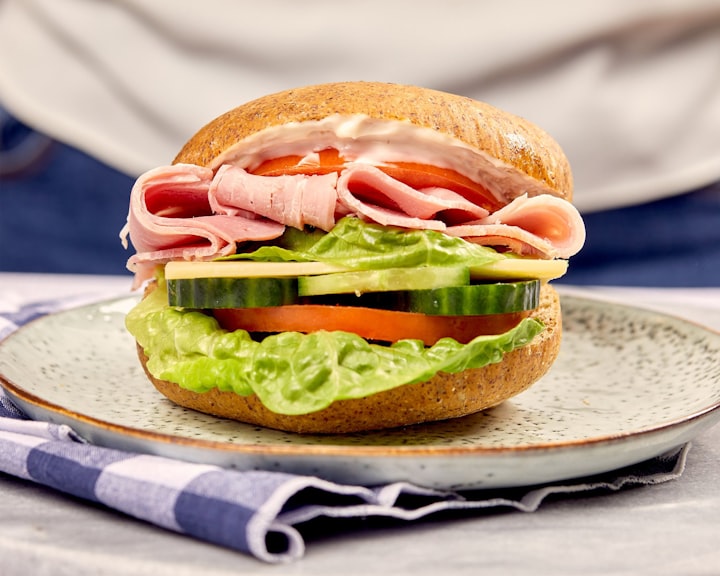
The best ketogenic diet plan for beginners typically includes 10 key strategies:
Eliminating sugar and high-carb foods
Focusing on high-fat, low-carb foods
Consuming moderate protein
Eating enough greens and low-carb vegetables
Incorporating healthy fats
Limiting snacking
Staying hydrated
Monitoring progress
Planning ahead
Consulting a doctor or a dietitian before starting.
It's important to keep in mind that what works for one person may not work for another, so it's important to work with a healthcare professional to create a plan that is tailored to your individual needs and goals.
Eliminating sugar and high-carb foods
Eliminating sugar and high-carb foods is one of the key strategies of the ketogenic diet. This means cutting out or significantly reducing foods that are high in carbohydrates and sugar, such as bread, pasta, grains, sweet fruits, sugary drinks, and processed snacks. When following a ketogenic diet, the focus should be on consuming healthy fats, moderate protein, and low-carb vegetables instead.
It's important to note that while cutting out sugar and high-carb foods can be beneficial for some people, it's not recommended to completely eliminate all carbs from your diet, because Carbohydrates are the primary source of energy and essential for healthy brain function. Also some fruits, vegetables, nuts and grains are healthy sources of carbohydrates, and are important for maintaining overall health and wellbeing.
Focusing on high-fat, low-carb foods
Focusing on high-fat, low-carb foods is another key strategy of the ketogenic diet. High-fat foods are an important source of energy on this diet, as they provide the body with the necessary fat it needs to enter a state of ketosis. Examples of high-fat foods include avocados, olive oil, coconut oil, butter, nuts, and fatty meats.
Low-carb vegetables, such as leafy greens, broccoli, cauliflower, and kale, are also an important part of the ketogenic diet, as they provide fiber, vitamins, and minerals, while keeping carbohydrate intake low.
It's important to note that the ketogenic diet is high in fat and protein, and very low in carbohydrates (usually less than 50 grams per day). So, ideally the majority of calories intake should come from healthy fats, moderate amount from protein and the rest from vegetables.
It's also important to mention that the ketogenic diet is not recommended for people who want to lose weight, but also for people with conditions such as epilepsy, type 2 diabetes, metabolic syndrome and other health conditions.
Consuming moderate protein
Consuming moderate amounts of protein is another key strategy of the ketogenic diet. Protein is an important nutrient for maintaining muscle mass, repairing tissues, and supporting overall health.
However, on a ketogenic diet, the focus is on consuming high amounts of healthy fats, so protein intake should be moderate and should not exceed your daily caloric needs. Consuming too much protein can kick you out of ketosis as the body converts excess protein into glucose.
The recommended daily protein intake for ketogenic diet is around 1.2 to 1.7 grams of protein per kilogram of body weight, or 0.55 to 0.8 grams per pound. It's important to note that protein needs can vary depending on factors such as age, sex, weight, and activity level.
Examples of moderate-protein foods include meat, fish, eggs, and dairy products. It's important to choose high-quality protein sources, such as grass-fed beef and wild-caught fish, as they are more nutritious and have a better omega-3 to omega-6 ratio.
Eating enough greens and low-carb vegetables
Eating enough greens and low-carb vegetables is another important strategy for the ketogenic diet. Vegetables are an important source of fiber, vitamins, and minerals, and they also help to keep carbohydrate intake low.
Greens and low-carb vegetables, such as spinach, kale, broccoli, cauliflower, and Brussels sprouts, are especially beneficial on the ketogenic diet. These vegetables are nutrient-dense and low in carbohydrates, making them ideal for those following a ketogenic diet.
It's important to note that the carbohydrate content of vegetables can vary, so you should choose vegetables with a lower carbohydrate content and be mindful of your portion sizes to stay within your daily carbohydrate limits.
One strategy is to eat non-starchy vegetables such as leafy greens, broccoli, cauliflower, and asparagus, which are lower in carbs. Eating low-carb vegetables in salads, soups, and as side dishes can be a great way to get the vitamins and minerals you need while keeping your carbohydrate intake low.
It's also important to mention that the goal of the ketogenic diet is not to restrict the intake of the vegetables, but to focus on the quality of the food rather than the quantity.
Incorporating healthy fats
Incorporating healthy fats is an essential part of the ketogenic diet. Since this diet is high in fat, it's important to choose the right types of fats to ensure optimal health.
Some healthy fats that are commonly consumed on the ketogenic diet include:
Monounsaturated fats: found in olive oil, avocado, and nuts
Polyunsaturated fats: found in fatty fish, such as salmon and sardines, and in seeds and nuts
Saturated fats: found in coconut oil, butter, and meat
It's important to note that the ketogenic diet is not a high-protein diet, but a high-fat diet, so the majority of calories should come from healthy fats. However, it's important to monitor the ratio of omega-3 to omega-6 fatty acids in your diet, as an imbalance in this ratio has been linked to inflammation and other health problems.
It's also important to avoid unhealthy fats, such as processed vegetable oils, which are high in omega-6 fatty acids and have been linked to inflammation. Trans fats should be avoided as well, as they are known to be harmful to health.
Incorporating healthy fats in the diet can not only aid in weight loss and ketosis, but also improves cognitive function, increases satiety and overall healthy heart, it is also beneficial for people with certain medical conditions such as type 2 diabetes.
Limiting snacking
Limiting snacking is an important strategy for the ketogenic diet. On this diet, it's important to eat in a way that promotes ketosis, which is a metabolic state in which the body burns fat for fuel rather than carbohydrates. One way to do this is by limiting snacking between meals and instead consuming most of your calories at mealtimes.
Snacking can be problematic for people following a ketogenic diet because it can be difficult to find ketogenic-friendly snack options that are high in fat and low in carbohydrates. Also snacking between meals can affect blood sugar levels, and may disrupt hunger signals, leading to overeating or weight gain.
Eating three well-balanced meals a day with healthy fats, moderate protein, and low-carb vegetables, should be enough to provide the energy you need. And if you feel the need to snack, try to opt for high-fat, low-carb options such as nuts, seeds, cheese, and hard-boiled eggs, so it's not kicking you out of ketosis
That being said, everybody has different needs, if you're doing intense physical activities or have a very active lifestyle, you may need to adjust your meal and snack schedule, in that case is always important to listen to your body and consult with a dietitian.
Staying hydrated
Staying hydrated is an important strategy for anyone following a ketogenic diet. Adequate hydration is essential for overall health and well-being, and it can also help to support weight loss and improve energy levels.
When following a ketogenic diet, it's important to drink enough water to help flush out the byproducts of fat breakdown, called ketones, which can be excreted through urine. The kidneys need enough water to work properly and excrete these ketones efficiently. Also, drinking enough water can help to prevent dehydration, which can lead to symptoms such as headaches, fatigue, and constipation.
Watch The Full Diestels To see the Full description of this article click on this sentence
#weightloss #keto #lossweight #diet #healtha
About the Creator
aishwarya
Hello My Friends
Welcome To My Website !
We’re here to help you reach your health and wellness goals through personalized meal plans, tips and tricks for healthy eating, and more! Join the #AishwaryaKetoMelPlan movement and get fit today!






Comments
There are no comments for this story
Be the first to respond and start the conversation.